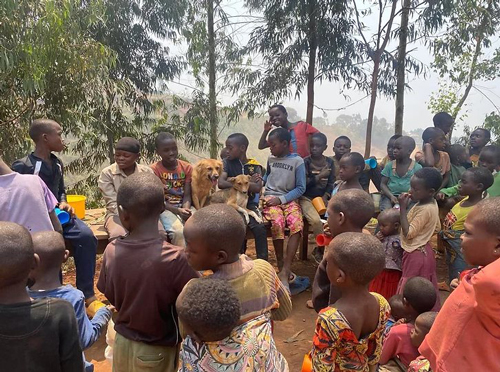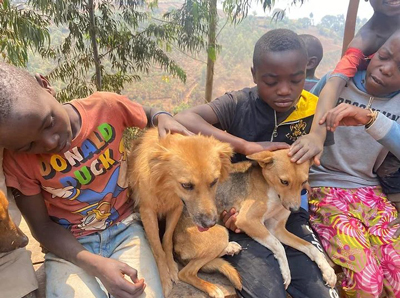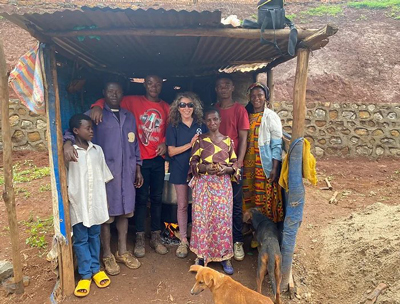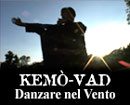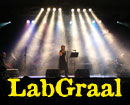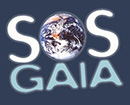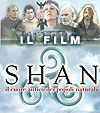| English Page |
Sauvons nos Animaux, Congo: Animal-Friendly Camp |
 |
 |
| 20 December 2023 | ||||||||
Ecospirituality arrives in Congo. The great work of Paterne Huston Bushunju in keeping faith with the commitment made with Giancarlo Barbadoro, the inspirer of the refuge
In November I spent time in Bukavu, visiting with our Partner Organization, Sauvons nos Animaux. Director Paterne and I discussed the many accomplishments and what lies ahead for Sauvons nos Animaux. Sauvons nos Animaux rescued many dogs and cats during 2023, worked with the local community to encourage improved care of pets and treatment of street dogs and cats, they hosted the after school Youth Club, and held the 7-week Animal Friendly Kids Camp. They planted large vegetable gardens to supplement the lunches served at the Kids Camp and for vegetables to add to the homemade dog food. This year's Animal-Friendly Kids Camp at the Sauvons nos Animaux shelter in Bukavu in the Democratic Republic of Congo hosted 240 children, with 160 of them old enough to actively participate in SnA's trainings, shelter tasks, and vegetable gardening. The ~80 others are very young and mostly get to observe (and eat lunch), but will more actively have a chance to participate in subsequent years. The 2023 camp took place from 20 July to 2 August, starting a little later than usual because first, the SnA shelter wall (funded by Animal-Kind Int'l donors) had to be stable enough to ensure no harm would come to the kids. Camp is a combination of lessons (always with some fun mixed in), games and craft making, and tasks. For example, the kids learn the benefits of plant-based eating and even get to practice their culinary skills, making smoothies and other treats. They learn about good animal care, including how to feed cats and dogs, that clean water is very important; they learn about grooming, vaccinating, and spay/neuter. They learn how to approach dogs and how to hold a cat. Lessons also include information about Congo's amazing biodiversity. And in general, the kids learn respect for cats, dogs, all animals, and each other.
While feeling proud of all the accomplishments in 2023, we both - Sauvons nos Animaux and Animal-Kind International - realize that 2024 holds many challenges and there are still so many needs. One day at camp, Paterne and the children discussed "saying no to dog meat." Unfortunately, some children have been forced by family members to eat dog meat or have eaten dog meat without even being aware of it. Here are a few touching testimonials from the campers: Emilie: "When I came home from school, my aunt served me a plate of meat. She said it was chicken. I ate it, but when I found out later that it was actually dog meat, I was extremely shocked and upset. I wish people would understand that animals deserve to be respected and loved, not eaten." Paterne explained that chickens are animals too and deserve to be treated with respect and not treated cruelly. This is a new concept for most given that chickens are raised as free-range, but then they are transported to markets in pretty horrid cramped conditions; from markets to home by foot, bike, or motorbike (usually swinging upside down-like an inanimate object), or on the top or in the boot of a vehicle (like luggage); and sold at markets, spending all day in small cages, with no shade, no water. Thinking about chickens as feeling beings can be a whole new way for the kids to think about chickens. Mugoli: "During a family meal, my uncle insisted that I try some meat he had prepared. I had no idea it was dog meat. When I learned the truth, I was devastated. Animals are our friends, and they should never be mistreated in this way." Aline had a similar experience and when asked how it made her feel to have eaten dog meat without knowing what she was eating, she said, "I felt betrayed and sad to have contributed to this animal suffering." Paterne told us, "These poignant testimonials underline the importance of informing children about respect for animals and their food choices. At Animal Friendly Kids Camp, we attach great importance to respect for all living beings. Having heard from the camp children, we'll be even more committed to promoting a world where all living things are treated with respect and compassion."
What were the highlights of this year's Animal Friendly Kids Camp? From Paterne's view, the greatest impacts and his most favorite memories are: • Familiarizing the children with the shelter's animals and their different personalities and how to live with a family cat and dog, how to protect them, and how to combat abuse. Paterne is grateful to everyone who helped make the 2023 camp a reality. :If we didn't organize the camp, these children would be on the street begging or being used in building sites and others might be involved in abuse, because it's in the dry season that there are more cases of abuse. The only problem we have is that we don't have a shelter where the children can sit without being exposed to the burning Congolese sun." Paterne's wife Esther, a trained agronomist, taught the campers how to plant and take care of a vegetable garden. Here, along with her friend, Esther is showing the campers how to plant amaranth seeds. Amaranth greens are a popular food. First and foremost, as everywhere, prices have sharply increased. But when prices go up, because it's far from Congo's main cities, Bukavu feels the brunt of the increases more than many other places. Worse, supplies - mainly packaged/commercial cat and dog food are often totally unavailable. In most shops, we found only 3 kg bags of dog food and they were priced at a whopping US$18. Paterne and I discussed options and for now decided that although more difficult and not as nutritious, the staff would continue to cook the dog and cat food. Paterne will be visiting Burundi, which is less expensive and easier to reach than Goma in the DRC, and where dry dog food may be less expensive and more readily available, and he will try to find a reliable supplier there. At the current cost of dog meat, rice, and fish for cats, we expect that in 2024, at the current population level at the shelter, dog food will cost about US$18,000 and cat food about US$2000 for a total of $20,000 for the year. This assumes that the population remains fairly constant, which as anyone who has worked at a shelter knows, is unlikely to be the case.
Paterne currently employs one full time vet, Dr Aristide at US$3000/year and 5 animal caretakers (Olga, Nabintu Emily, Olivier, Aganzi, Francois) at $1200/year each for a total of $6000/year. Sauvons nos Animaux really needs to employ a night security man, which we expect will cost about $1200/year. Paterne gets no salary, but the least we can do is cover his transportation costs to and from the shelter, to purchase cat and dog food, to travel to communities to rescue animals and talk to people about caring for animals. That's at least US$1500 ($1200 to and from the shelter plus ~$300 for community trips). There's also utilities, shelter supplies, including for needed repairs (which are many, such as fixing the fencing along the bottom and top of the pens to prevent escapes, fixing the gates to the pens), veterinary medicines, administrative costs (and in DRC these are many), the year-round afer school Youth Club, and the Animal Friendly Kids Camp. The costs to run the shelter quickly add up! SOS Gaia, a commission of the Ecospirituality Foundation, periodically raises funds for the Sauvons nos Animaux refuge, but unfortunately it is never enough. In addition, we talked about the need for signage at the entrance to the shelter and in Bukavu town, hiring a dedicated Humane Ed Officer, and a very big project: constructing a building to house the kitchen (currently a lean-to), a secure storage room, a vet clinic (currently one tiny room without adequate storage and space for recovering animals), and a room for the staff and a room for kids who visit the shelter (to have cover from the many days of heavy rain and in the dry season, the bright sun). Small and large fixes could make the Sauvons nos Animaux shelter a safer place for animals, staff, and visitors, and would be more welcoming in general to the local community and even beyond....it would be a great showcase for those who want to visit the only animal shelter in the Democratic Republic of Congo! We'll have more information for you as Sauvons nos Animaux develops the plan for a new building and as 2024 unfolds for the shelter...stay tuned!
|
 -->
-->
